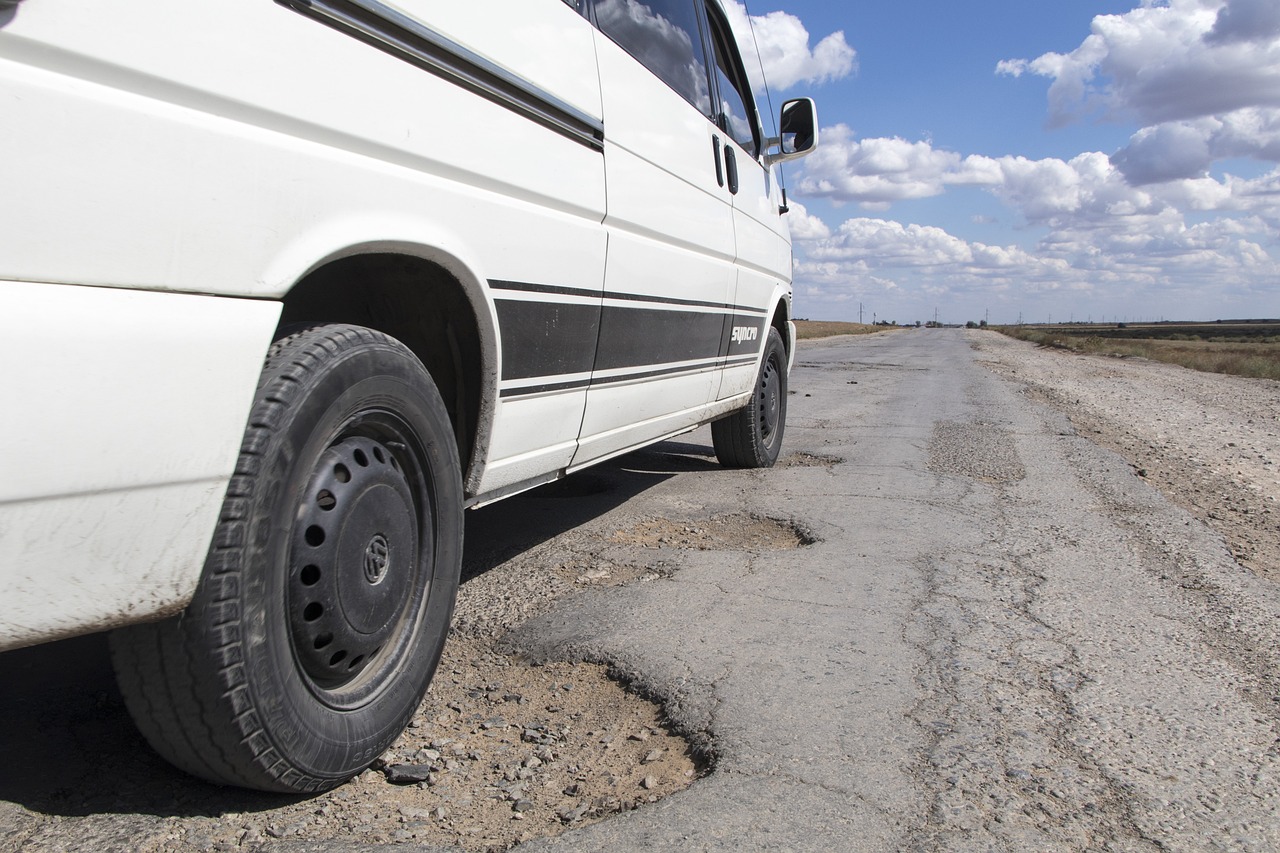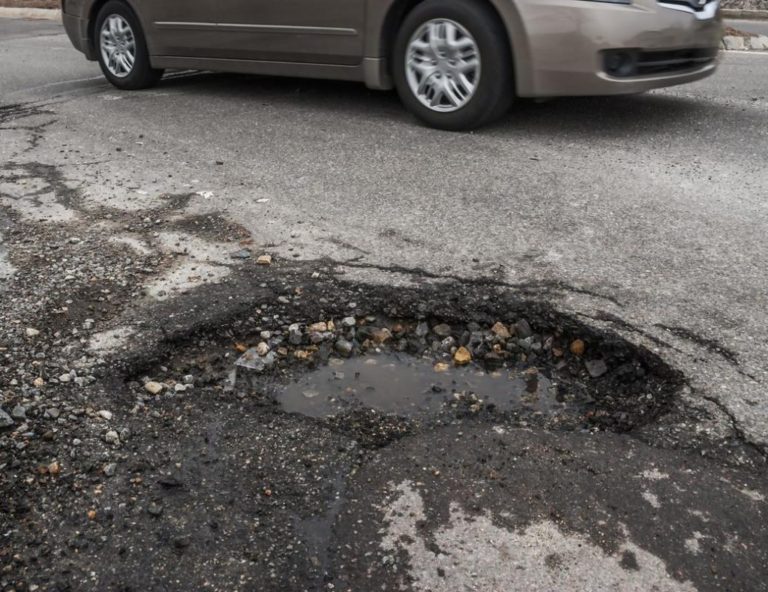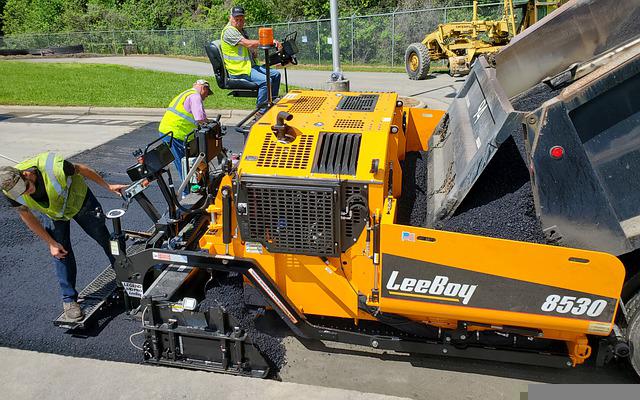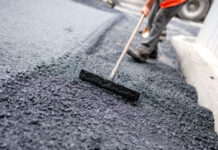Potholes are a common and persistent issue in asphalt surfaces, causing inconvenience and potential hazards for both drivers and pedestrians. In Louisville, Kentucky, where weather conditions can contribute to the formation of potholes, effective repair techniques are essential to maintain safe and smooth roadways. In this guide, we will explore transformative asphalt pothole repair techniques that go beyond conventional approaches, ensuring lasting solutions for the community. For professional assistance and expertise, Commonwealth Paving, located at 136 Outerloop, Louisville, Kentucky 40214, can be reached at +1 502 459 7283, offering innovative solutions to address pothole repair challenges.
- Rapid Response and Assessment:
Transformative pothole repair begins with a rapid response to reported issues and a comprehensive assessment of the affected areas. Commonwealth Paving prioritizes timely interventions to minimize the impact of potholes on road safety and vehicle maintenance costs. Their experienced team conducts thorough assessments to understand the underlying causes of potholes, allowing for tailored and effective repair strategies.
- Advanced Patching Materials:
Traditionally, pothole repairs involved basic patching materials. However, transformative techniques incorporate advanced materials that offer superior durability and performance. Commonwealth Paving utilizes high-quality patching materials designed to withstand the stresses of heavy traffic, fluctuating temperatures, and environmental factors. These materials ensure long-lasting repairs that extend the lifespan of the asphalt surface.
- Infrared Asphalt Repair Technology:
Infrared asphalt repair technology represents a transformative approach to addressing potholes. This innovative technique involves heating the existing asphalt around the pothole using infrared rays. The softened asphalt is then reworked and blended with new material before being compacted. Infrared repairs result in a seamless and durable surface, eliminating the common issues associated with traditional patching methods.
- Spray Injection Pothole Repair:
Spray injection pothole repair is a cutting-edge technique that utilizes specialized equipment to clean the pothole, apply an adhesive, and fill it with a mixture of asphalt and aggregate. This method creates a strong bond and a compact, durable patch. Commonwealth Paving employs state-of-the-art spray injection technology to achieve efficient and long-lasting pothole repairs in Louisville.

- Geotextile Fabric Reinforcement:
To address the root causes of potholes and prevent future occurrences, transformative techniques may involve the use of geotextile fabric reinforcement. This fabric is placed within the layers of asphalt during repairs, providing additional strength and stability to the surface. Commonwealth Paving considers geotextile fabric as part of a comprehensive strategy to enhance the resilience of repaired areas.
- Sustainable Pothole Repair Practices:
Transformative pothole repair goes beyond immediate fixes; it incorporates sustainable practices to minimize environmental impact. Commonwealth Paving prioritizes eco-friendly materials and techniques, contributing to the overall sustainability of the repair process. Sustainable pothole repair practices align with the community’s commitment to environmental responsibility.
- Customized Repair Solutions:
Every pothole is unique, and a transformative approach involves customized repair solutions. Commonwealth Paving tailors their repair strategies to the specific characteristics of each pothole, considering factors such as size, location, and underlying causes. This personalized approach ensures that repairs are not only effective but also address the root issues for long-term success.
- High-Performance Cold Mix Asphalt:
Transformative pothole repair incorporates high-performance cold mix asphalt, designed to offer durability and flexibility in various weather conditions. Commonwealth Paving utilizes premium cold mix asphalt to achieve lasting repairs that withstand the challenges posed by Louisville’s climate fluctuations.
- Minimizing Traffic Disruption:
Recognizing the importance of minimizing traffic disruption during repairs, Commonwealth Paving employs efficient techniques that reduce downtime. The use of rapid-curing materials and streamlined processes ensures that pothole repairs are completed with minimal impact on daily traffic flow, contributing to improved road safety and convenience.
- Continuous Innovation and Training:
To stay at the forefront of transformative pothole repair, Commonwealth Paving prioritizes continuous innovation and training. Their team is equipped with the latest knowledge and techniques, allowing them to adapt to emerging technologies and industry advancements. This commitment to ongoing education ensures that the community benefits from state-of-the-art pothole repair solutions.
- Community Engagement and Reporting:
Engaging with the community is an integral part of transformative pothole repair. Commonwealth Paving encourages residents to report potholes promptly, facilitating a collaborative effort to address road maintenance needs. Open communication channels and community reporting contribute to a more responsive and effective pothole repair strategy.
- Proactive Preventative Maintenance:
Transformative pothole repair extends beyond reactive measures; it includes proactive preventative maintenance strategies. Commonwealth Paving works with the community to implement preventative measures, such as routine inspections, crack sealing, and surface treatments, to minimize the occurrence of potholes and prolong the life of asphalt surfaces.
Transformative pothole repair techniques in Louisville, Kentucky, are essential for creating safe, resilient, and long-lasting roadways. Commonwealth Paving, with its commitment to innovation, advanced technologies, and community engagement, stands as a leader in providing transformative solutions for pothole repair. By incorporating cutting-edge methods, sustainable practices, and a personalized approach, Commonwealth Paving ensures that the community benefits from repairs that go beyond mere fixes, contributing to the overall well-being and safety of Louisville’s road infrastructure. For inquiries or to report potholes, contact Commonwealth Paving at +1 502 459 7283, or visit their address at 136 Outerloop, Louisville, Kentucky 40214.
Mastering Asphalt Pothole Repair Techniques for Lasting Solutions
Potholes are a persistent and widespread issue on roadways, causing inconvenience and safety concerns for drivers and pedestrians alike. Mastering asphalt pothole repair techniques is crucial for municipalities and paving professionals seeking to provide lasting solutions and maintain the integrity of road surfaces. In this comprehensive guide, we will delve into the art of mastering asphalt pothole repair techniques, emphasizing the importance of precision, innovation, and a proactive approach. If you’re seeking expert assistance, Commonwealth Paving, situated at 136 Outerloop, Louisville, Kentucky 40214, and reachable at +1 502 459 7283, stands as a reliable partner with a wealth of experience in mastering pothole repairs.
- Thorough Pothole Assessment:
Mastering pothole repair begins with a thorough assessment of the affected areas. Before any repair work commences, it’s crucial to understand the root causes of potholes, including factors such as water infiltration, freeze-thaw cycles, and underlying structural issues. Commonwealth Paving employs a comprehensive approach to pothole assessment, ensuring that repairs address both the symptoms and underlying causes for lasting solutions.
- Innovative Infrared Technology:
An innovative and transformative technique in mastering pothole repair is the use of infrared technology. Infrared repair involves heating the existing asphalt around the pothole, allowing it to become malleable. The softened asphalt is then reworked, and new material is added as needed before compaction. This method creates a seamless and durable repair, minimizing the chances of future pothole formation. Commonwealth Paving utilizes state-of-the-art infrared technology to achieve efficient and long-lasting results.
- Advanced Patching Materials:
The choice of patching materials is a critical factor in mastering pothole repair. Utilizing advanced patching materials ensures durability and longevity of repairs. Commonwealth Paving sources high-quality materials designed to withstand the stresses of heavy traffic, weather fluctuations, and environmental factors. These materials contribute to the overall resilience of the repaired areas.

- Spray Injection Pothole Repair:
Spray injection pothole repair is an advanced technique that involves cleaning the pothole, applying an adhesive, and filling it with a mixture of asphalt and aggregate. This method creates a strong bond and a compact, durable patch. Commonwealth Paving employs cutting-edge spray injection technology to achieve efficient and effective pothole repairs, particularly in high-traffic areas.
- Geotextile Fabric Reinforcement:
Mastering pothole repair involves addressing the root causes and preventing future occurrences. The use of geotextile fabric reinforcement is a proactive approach to strengthening the repaired areas. Commonwealth Paving incorporates geotextile fabric within the layers of asphalt during repairs, providing additional stability and resilience to the surface.
- Sustainable Practices:
As sustainability becomes a more significant consideration in the construction industry, mastering pothole repair includes adopting eco-friendly and sustainable practices. Commonwealth Paving is committed to utilizing environmentally conscious materials and methods, ensuring that pothole repairs contribute to overall environmental responsibility.
- Customized Repair Solutions:
Every pothole is unique, requiring a customized approach to achieve effective repairs. Commonwealth Paving tailors repair solutions to the specific characteristics of each pothole, considering factors such as size, location, and underlying causes. This personalized approach ensures that repairs not only address immediate issues but also prevent future problems.
- Proactive Preventative Maintenance:
Mastering pothole repair goes beyond reactive measures; it includes a proactive approach to preventative maintenance. Commonwealth Paving collaborates with municipalities and communities to implement preventative measures such as routine inspections, crack sealing, and surface treatments. This proactive stance minimizes the occurrence of potholes and extends the lifespan of asphalt surfaces.
- Continuous Education and Training:
The field of pothole repair is continually evolving with new technologies and materials emerging. Mastering these techniques requires continuous education and training. Commonwealth Paving prioritizes the ongoing education of its team, ensuring they remain informed about the latest advancements and industry best practices for pothole repair.
- Cutting-Edge Cold Mix Asphalt:
Mastering pothole repair involves the use of high-performance cold mix asphalt. Commonwealth Paving utilizes premium cold mix asphalt known for its durability and flexibility in various weather conditions. The application of cutting-edge cold mix asphalt ensures that repairs withstand the challenges posed by temperature fluctuations, heavy traffic, and environmental factors.
- Minimizing Traffic Disruption:
Recognizing the impact of road closures on the community, Commonwealth Paving employs efficient techniques to minimize traffic disruption during pothole repairs. The use of rapid-curing materials and streamlined processes ensures that repairs are completed with minimal impact on daily traffic flow, contributing to improved road safety and convenience.
- Community Engagement and Reporting:
Engaging with the community is a vital aspect of mastering pothole repair. Commonwealth Paving encourages residents to report potholes promptly, fostering a collaborative effort to address road maintenance needs. Open communication channels and community reporting contribute to a more responsive and effective pothole repair strategy.
Mastering asphalt pothole repair techniques requires a combination of precision, innovation, and a proactive mindset. Commonwealth Paving, with its commitment to excellence and continuous improvement, stands as a leader in providing transformative solutions for pothole repair in Louisville, Kentucky. By incorporating cutting-edge technologies, sustainable practices, and a personalized approach, Commonwealth Paving ensures that the community benefits from repairs that go beyond mere fixes.
For inquiries or to report potholes, contact Commonwealth Paving at +1 502 459 7283, or visit their address at 136 Outerloop, Louisville, Kentucky 40214. With their expertise and dedication, Commonwealth Paving contributes to the overall safety, functionality, and longevity of Louisville’s road infrastructure.
A Step-by-Step Guide to Mastering Asphalt Pothole Repair
Potholes are a common nuisance on roadways, driveways, and parking lots, posing risks to both vehicles and pedestrians. Mastering asphalt pothole repair is a valuable skill that empowers individuals and municipalities to address these issues promptly and effectively. In this comprehensive guide, we’ll provide a step-by-step walkthrough of the asphalt pothole repair process, emphasizing key techniques and considerations for lasting results. If you’re in need of professional guidance or assistance, Commonwealth Paving, located at 136 Outerloop, Louisville, Kentucky 40214, can be reached at +1 502 459 7283, offering expertise in mastering pothole repairs.
Step 1: Safety First
Before diving into pothole repair, prioritize safety. Ensure that the work area is well-marked with warning signs, cones, or barriers to alert drivers and pedestrians. Wear appropriate personal protective equipment (PPE), including gloves and safety vests, to minimize risks during the repair process.
Step 2: Gather Necessary Tools and Materials
To effectively repair potholes, gather the necessary tools and materials. This may include a shovel, broom, tamper, asphalt patch mix, cold mix asphalt, an asphalt rake, safety gear, and a compacting tool. Commonwealth Paving can provide guidance on suitable materials for your specific repair needs.
Step 3: Clean the Pothole
Start by cleaning the pothole and its surrounding area. Remove debris, loose asphalt, and any vegetation. A stiff broom or air blower can be effective in clearing the pothole, providing a clean surface for the repair materials to adhere.
Step 4: Square off the Pothole
Square off the edges of the pothole using a shovel or an asphalt saw. Creating clean, straight edges helps the patch material adhere more effectively and contributes to a neater finish.
Step 5: Apply an Adhesive
For a more durable and long-lasting repair, consider applying an adhesive to the edges of the pothole. This adhesive enhances the bond between the existing asphalt and the patch material, providing added strength to the repair.
Step 6: Fill the Pothole with Patch Mix
Carefully fill the pothole with the selected asphalt patch mix. Common patching materials include hot mix asphalt, cold mix asphalt, or a specialized patching compound. Ensure that the patch mix is level with the surrounding asphalt surface.
Step 7: Compact the Patch Material
Use a tamper or compactor to compact the patch material thoroughly. Proper compaction is crucial for achieving a dense and stable repair. Work in layers if necessary, adding more patch mix and compacting until the pothole is adequately filled.

Step 8: Feather the Edges
Feather the edges of the patch material to create a smooth transition between the repair and the existing asphalt surface. This not only enhances the aesthetics but also minimizes the chances of water infiltration at the edges.
Step 9: Seal the Repaired Area
Consider applying a sealant over the repaired area to provide an additional layer of protection. Sealcoating helps prevent water penetration, UV damage, and extends the life of the repair. Commonwealth Paving can offer guidance on selecting the right sealant for your specific needs.
Step 10: Allow for Curing Time
Give the repaired area sufficient time to cure and set. Follow the manufacturer’s recommendations for curing times based on the patching material used. Avoid vehicular traffic or other heavy loads on the repaired area during the curing period.
Step 11: Perform Regular Inspections
After the repair has cured, perform regular inspections to ensure its effectiveness. Look for any signs of deterioration, settling, or new cracks. Timely identification of potential issues allows for prompt corrective action.

Step 12: Consider Preventative Maintenance
To prevent future potholes and extend the life of your asphalt surface, consider implementing preventative maintenance measures. This may include routine inspections, crack sealing, and surface treatments. This may include routine inspections, crack sealing, and surface treatments. Commonwealth Paving can provide expert advice on preventative maintenance tailored to your specific needs.
Commonwealth Paving’s Expertise in Asphalt Pothole Repair:
For those seeking professional guidance or assistance in mastering asphalt pothole repair, Commonwealth Paving stands as a reliable partner. With a commitment to excellence and a wealth of experience, they offer expertise in choosing the right materials, utilizing advanced techniques, and providing tailored solutions for pothole repairs.
Commonwealth Paving, located at 136 Outerloop, Louisville, Kentucky 40214, can be contacted at +1 502 459 7283. Their team of experts is equipped to assess your specific repair needs and guide you through the process, ensuring a successful and long-lasting pothole repair. Whether you’re a homeowner or a municipality, mastering asphalt pothole repair with the assistance of Commonwealth Paving ensures safe, well-maintained surfaces that withstand the test of time.
Address
Commonwealth Paving, 136 Outerloop, Louisville, Kentucky 40214
Phone: 502-459-7283, Fax: 502-456-2678
Opening Hours
| Monday | 9:00 AM – 5:00 PM |
| Tuesday | 9:00 AM – 5:00 PM |
| Wednesday | 9:00 AM – 5:00 PM |
| Thursday | 9:00 AM – 5:00 PM |
| Friday | 9:00 AM – 5:00 PM |
| Saturday | Closed |
| Sunday | Closed |






